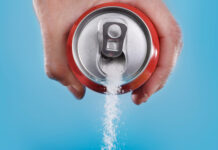In recent months, the issue of traffic lights on labels has been back in the national news. Because of the opposing positions expressed by Agriculture Minister Maurizio Martina, echoing the unusual coalition between Coldiretti and Federalimentare. However, the rhetoric falls outside the reality of the facts and its legal assumptions. Let’s try to provide some clarity.
The system of so-called traffic lights has been developed and tested in England for a long time on a voluntary basis with the support of the Ministry of Health. In order to help consumers identify at a glance the elements worthy of attention (energy, fat and saturated fat, sugar and salt) in each product. So as to reduce health-threatening excesses, and bring balance to the diet.
EU Regulation 1169/11 recognized the role of national legislators, in introducing voluntary summary nutrition information systems, additional to the mandatory declaration established at the European level (reg. cit., Art. 35). And the European Commission is in fact about to give the green light to British traffic lights. As it will later do with the NutriScore system, similar in some respects, later adopted in France.
The international Big Food giantsrecently declared their support for British traffic lights, and their commitment to enforce them. To garner praise from consumer associations (BEUC at the European level, AltroConsumo in Italy) and set aside prospects for more effective public intervention, such as sugar taxes. (1)
The usefulness of traffic lights is evident on HFSS(High Fats, Sugars and Sodium) foods. Such as sugary drinks, which in a single can offer sugars in amounts exceeding the thresholdrecommended for an adult by the WHO. Snacks, snacks and chips in palm oil, loaded with saturated fat. But also ‘unsuspected’ products such as ready meals for vegetarians and vegans, which are too often hyper-salted.
Food-related nutrient profiles, in turn, are used to distinguish those that are imbalanced in energy, nutrient and sodium intakes. They were introduced by the regulation on Nutrition & Health Claims, (2) for the specific purpose of preventing alleged health benefits from being boasted about HFSS foods (such as. the Nesquik Optistar, as well as breakfast cereals that are promoted as healthy because they are enriched in vitamins, although they are often excessive in sugars).
The function of nutrient profiles is broader, as emphasized by the WHO Office for the Europe Region, which has in fact urged their adoption by member countries. They serve to demarcate those products within each food category that are nutritionally preferable. And place limits on marketing-especially when aimed at children and adolescents-of those that do not conform to the profiles themselves.
Without penalizing traditional foods – such as in Italy Parmigiano Reggiano or Grana Padano DOP, extra virgin olive oil to many others – which may be excluded from such ‘demarcation’ precisely because of their historical role within balanced diets – as precisely suggested by the WHO, and by the European legislator. (3)
The misinformation carried out in Italy moves from the overlapping of the concepts of semaphores on the label and nutritional profiles, which are in fact quite different as shown. To theorize that the one and the other would threaten foreign sales of the flagships of Made in Italy, such as Parmigiano, Parma ham and extra virgin olive oil. An artfully constructed fairy tale to protect the only products that are instead likely to be penalized. Cheaper confectionery ones, saturated with palm and sugar. Whose fate is sealed, however, unless they are dutifully reformulated.
Notes
(1) The 10 Big Sisters food lobby is also trying to transfer all information and nutritional assessment of foods from 100 g/ml to individual servings, which can come ‘custom-calibrated’ by marketing. Moreover, this approach is misleading to consumers, who lose the ability to compare different products by referring to the same quantity
(2) Reg. EC 1924/06, Article 4
(3) In fact, the Nutrition & Health Claims regulation provides for the possibility of excluding traditional foods. As is logical, all the more so since it is Europe itself that co-finances programs to promote traditional foods, under the CAP
Dario Dongo, lawyer and journalist, PhD in international food law, founder of WIISE (FARE - GIFT - Food Times) and Égalité.








